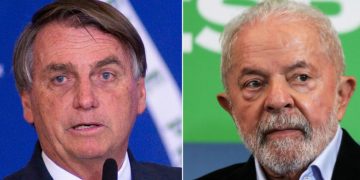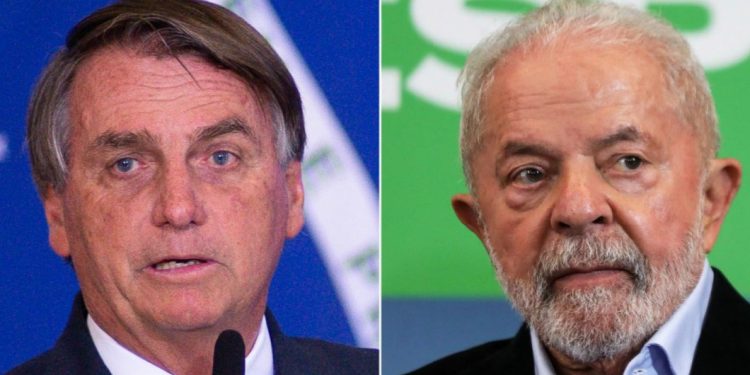By Emmanuel Nduka
Brazil’s ousted far-right leader, Jair Bolsonaro has fled the country, and won’t hand over presidential power to leftist successor Luiz Inacio Lula da Silva at a ceremony shrouded in exceptionally tight security amid threats
Supporters of President Bolsonaro had held a demonstration against the presidential election results that elected Lula da Silva as the new president at an improvised campsite in front of the Army headquarters in Brasilia, on December 29, 2022.
Bu Lula da Silva is now set to be inaugurated today for a third term as Brazilian President, in a ceremony snubbed by outgoing Bolsonaro, underlining the deep divisions the veteran leftist inherits.
The swearing-in will cap a remarkable political comeback for 77-year-old Lula, who returns to the presidential palace in Brasilia less than five years after being jailed on controversial, since-quashed corruption charges.
In a sign of the scars that remain from Lula’s brutal election showdown with far-right ex-army captain Bolsonaro in October, security will be exceptionally tight at the pomp-filled ceremony in the capital.
Some 8,000 police — including more than 1,000 federal officers, a record deployment for a presidential inauguration in Brazil — will provide security,
The stepped-up measures come after a Bolsonaro supporter was arrested last week for planting a tanker truck rigged with explosives near the Brasilia airport, a plot he said aimed to “sow chaos” in the South American country.
On Friday, Bolsonaro himself left Brazil for the US state of Florida— reportedly to avoid having to hand the presidential sash to his bitter enemy, as tradition dictates.
The snub has hardly dampened the party spirit for Lula and the 300,000 people expected at the ceremony and a massive concert featuring acts ranging from samba legend Martinho da Vila to drag queen Pabllo Vittar.
Thousands of Lula supporters have been flooding the capital, traveling by plane, car, and even bicycle to camp out near the Esplanade of Ministries.
Foreign dignitaries including 17 heads of state will also be in attendance as Lula, who previously led the country through a watershed boom from 2003 to 2010, takes the oath of office for a new four-year term at 3:00 pm (1800 GMT).
They include the presidents of a raft of Latin American countries, Germany, Portugal, and the king of Spain.
After being sworn in before Congress, Lula will travel by car — traditionally a black convertible Rolls Royce, though officials said that could be changed for security reasons — to the ultra-modern capital’s presidential palace, the Planalto.
There, he will walk up a ramp to the entrance and receive the gold- and diamond-embroidered presidential sash.
Organizers of the ceremony — led by first lady-to-be Rosangela “Janja” da Silva — have maintained a mystery around who will give Lula the sash in Bolsonaro’s absence.
It will be the first time since the end of Brazil’s 1965-1985 military dictatorship that an incoming president does not receive the yellow-and-green sash from his predecessor.
Incoming Lula faces numerous urgent challenges for Latin America’s biggest economy, which looks little like the commodities-fueled dynamo he presided over in the 2000s.
They include rebooting economic growth, curbing rampant destruction of the Amazon rainforest, and delivering on his ambitious poverty- and inequality-fighting agenda.
An estimated 30 million of Brazil’s 215 million people are living in hunger, and the economy is still struggling to recover from the coronavirus pandemic.
Vice president-elect Geraldo Alckmin described the incoming administration’s task as “herculean.”
Lula will face a Congress dominated by Bolsonaro’s conservative allies.
He is also dogged by far-right hardliners who have been rallying outside army bases calling for a military intervention to keep him from power ever since he narrowly won the October 30 runoff election, 50.9 percent to 49.1 percent.
“He will have to act assertively in his first 100 days to show where Lula Part Three is headed,” said political scientist Leandro Consentino of the Insper institute in Sao Paulo.
“His election win was very tight, and he’ll face a divided country and a combative opposition. He’ll have to lead a national unity government and restore the peace.”
Markets are meanwhile watching nervously how Lula will fund his promised social spending given Brazil’s overstretched government finances.
“Our priority will be taking care of the poorest, the neediest, of working people,” Lula recently noted.



































